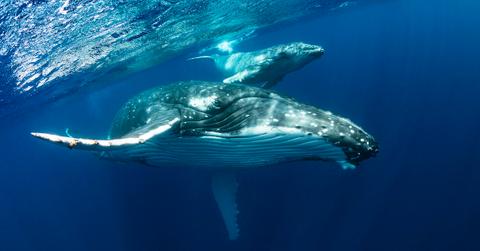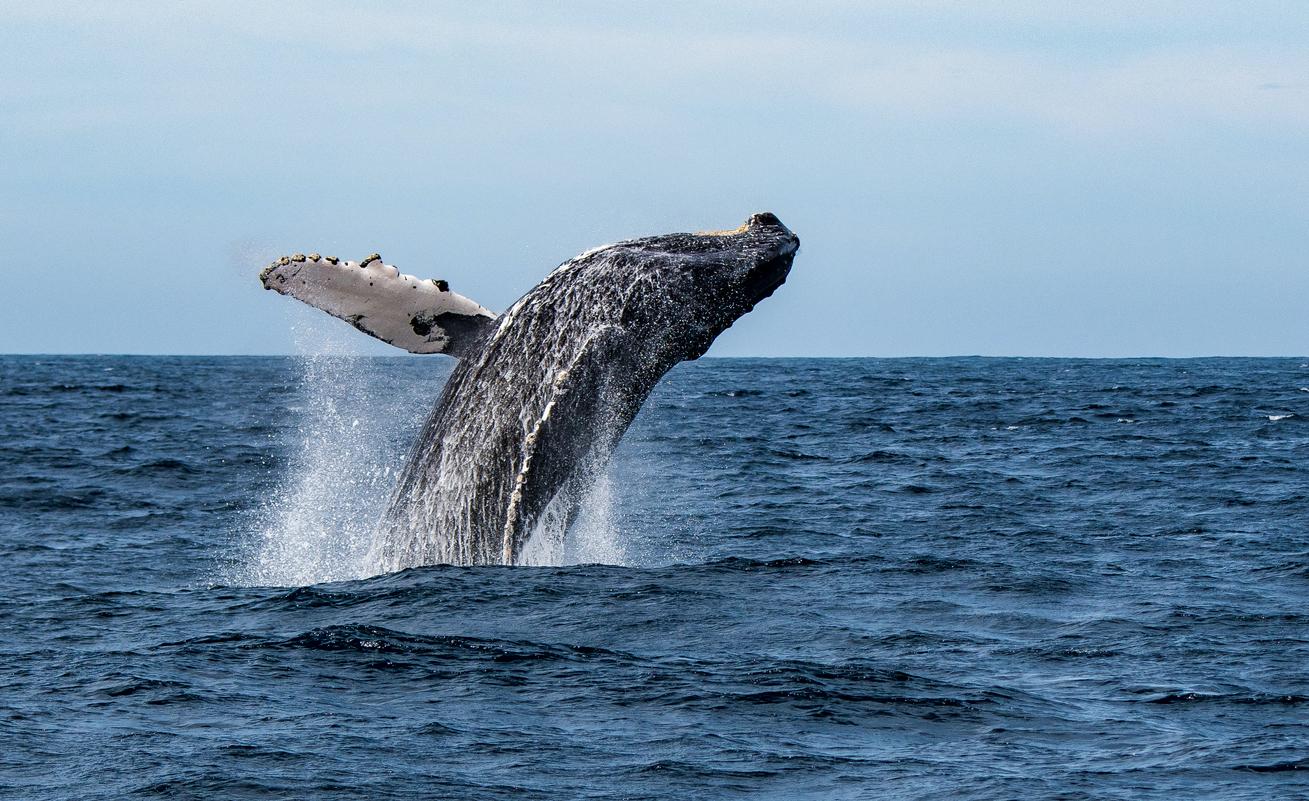Humpback Whale Populations Are Flourishing, a Sign of Hope for Other Marine Species
WSA humpback whales have recovered dramatically — and that means other species can as well.
Updated May 19 2020, 5:26 p.m. ET

Even though they’re at the top of the marine food chain, whales are well-known as an endangered species. But recently, one particular population of humpback whales has made an astounding recovery.
Dr. Kirsten Thompson, a Marine Scientist at University of Exeter, recently penned an in-depth story for TIME about the comeback of humpback whales that she has observed over the past few decades — and she explained how that’s a positive thing for the climate.
As described by Dr. Thompson and an October 2019 study published by the journal Royal Society Open Science, in the 1830s, there were around 27,000 western South Atlantic humpback (WSA) whales in existence. WSA humpback whales breed off the coast of Brazil and spend their summers in the Antarctic. As the whale hunting industry was born and grew over the following century, the humpback population sank — in the mid-1950s, the group consisted of just 450 humpback whales, and the population remained under 1,000 for a total of 40 years.
But over the past few decades, things have taken a turn. The current population of WSA humpback whales is a whopping 25,000 — that’s about 93 percent of what it originally was in the 1830s.
How did WSA humpback whale populations recover?

For one thing, in 1986, commercial whaling was finally made illegal; furthermore, various governmental protections, the creation of whale sanctuaries, and new rules regulating the whale trade also helped the population recover, Dr. Thompson noted.
Conservation efforts really do work, and these whales prove that.
What implications will WSA humpback whale recovery have on the planet?
Whales’ bodies absorb massive amounts of CO2. According to Dr. Thompson, a single whale stores an average of 33 tonnes of CO2. That means the current WSA humpback whale population has absorbed about 813,780 tonnes of CO2, which they are keeping safe in the deep sea. Without these whales, that CO2 would persist in the Earth’s atmosphere, where it would trap the sun’s rays and heat up the planet, aka global warming. When a whale dies of natural causes, and his or her body sinks to the bottom of the ocean, the absorbed CO2 gets trapped there.
Another result of the increase in WSA humpback whales is that it could wind up wiping out the Antarctic krill, a small crustacean that WSA humpback whales eat as their primary prey. This could lead to an imbalance in the food chain, which may change the community structure in the animals’ feeding grounds, according to the study.
Despite the uncertainty surrounding krill populations, the rise in WSA humpback whale populations is overall a positive thing for the oceans and the planet.
Humpback whale recovery rates provide hope for the future.
“This is a clear example that if we do the right thing then the population will recover,” lead author Alexandre Zerbini told USA Today when the study was released. “I hope it serves as an example that we can do the same thing for other animal populations.”
Dr. Thompson thinks this tale of recovery should provide hope for many other species in need of preservation. “[Ocean] protection means a well-connected, well-managed network of marine protected areas, in the form of a global network of marine reserve areas that cover 30 percent of the ocean and allow marine life to flourish,” Dr. Thompson wrote for TIME. “The science is clear: this can happen and it will work.”
Whales are so valuable to the planet for numerous reasons, and it's time we start putting conservation efforts into place to help all struggling whale populations.